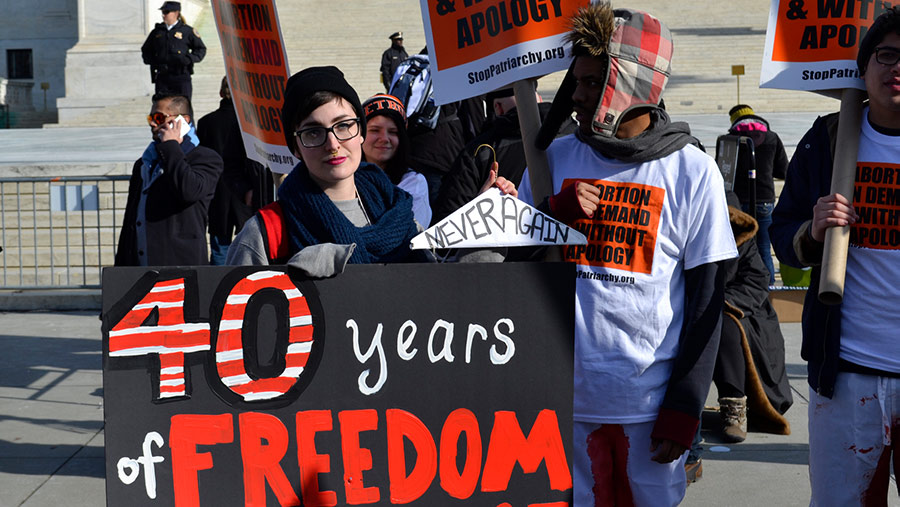By: Tom Gilson – stream.org – November 12, 2018
Rolling Stone published an article last month on “The Health Department’s Christian Crusade,” written by Tessa Stuart. Pro-life advocates will be encouraged to read the news it reports, but not the spin it puts on it. It’s another good example of how the other side handles this debate.
This so-called “Christian Crusade” at the Health Department is personified by Scott Lloyd, director of ORR, the Office of Refugee Resettlement. Lloyd is pro-life and a believer in Christ. He’s been using his position to stand in the way of refugee abortions in (apparently) every way possible.
We expect Rolling Stone would disagree with that. We can also learn from studying how they disagree. It’s mostly in their assumptions.
Assumption 1: Abortion is legal. Period. No more questions needed.
Because abortion is legal, ORR should facilitate every woman’s request for one. Or so the assumption goes. The Hyde Amendment prohibits the government from paying for abortions; otherwise, nothing should stand in the way.
Stuart quotes New York Attorney General Barbara Underwood: “The idea that [Lloyd] could conclude that an abortion, which is constitutionally protected in the U.S., was contrary to the best interest of everyone — every unaccompanied minor in his custody — was horrifying.” At least she qualified “everyone.” Lloyd was making decisions regarding minors in his custody.
She almost puts it as if the problem has to do with his making a blanket decisions covering all cases. I doubt, however, she’d have a problem with a blanket decision that abortion is always in everyone’s best interest. There’s some hypocrisy there, to be sure.
Assumption 2: It’s about religion. Period. So be quiet!
Stuart quotes Kevin Griffis, who had been HHS’s assistant secretary for public affairs during Obama’s presidency. He says, “We weren’t expecting religion seeping into the Office of Refugee Resettlement.” An ACLU lawyer, Brigitte Amiri, calls his actions “a stunning abuse of power and imposition of ideology — his own personal religious ideological opposition to abortion — on these young people.”
Somehow it escapes their attention that there’s ideology on both sides of this debate. They’ve done their best to impose theirs, too, especially upon the unborn, whom (again, ideologically) they define out of real human existence.
Religion is a convenient whipping horse for them, though. I don’t have the slightest qualms saying I’ve got a biblical basis for opposing abortion, but they know that kind of statement won’t fly in American political debate.
Non-Religious Opposition
But my opposition isn’t only “religious.” It’s also based on the fact that an unborn baby is an unborn human. It’s a leap off a moral cliff, then, to decide it’s okay to kill him or her. Abortion proponents say it’s all about the stage when the fetus reaches human “personhood.” If so, then it’s not a fully religious debate. (Why won’t they admit this?)
It’s easy to mount non-religious arguments for immediate “personhood.” One quick one: When you were just ten weeks into gestation, was that unborn child you? Or something else? When did you become you, and how do you know? There’s no rationally consistent way to answer that except, “I’ve been me since I was conceived.”
I could go on with other similar reasons, but that’s not my main purpose here. The main thing is to show how abortion advocates love to use “religion” as an escape valve in debate — even though it doesn’t work.
Assumption 3. Information is good except when it inhibits abortion.
Stuart says Lloyd has “instructed that girls be given medically unnecessary ultrasounds, and in one case he ordered staff to read a graphic description of an abortion to a girl who asked to terminate.”
In other contexts this would be considered informed consent. And “medically unnecessary” is really only a problem for invasive or otherwise risky procedures, or when they incur expense to a patient. Ultrasounds are completely safe and cost the girls nothing.
But it’s easy to see what’s going on here: Abortion advocates prefer uninformed (or at least under-informed) consent, because girls tend to shy away from it when they know more about it.
Dealing With Assumptions Like These
Assumptions are hard to penetrate. I am quite sure Rolling Stone and its authors will be unimpressed with my answers. That’s part of what’s made this such a protracted debate: Reason doesn’t always break through. Abortion activists answer with slogans instead: “Discrimination!” “Anti-choice!” “Religion!”
They rarely speak their real agenda, the one big assumption left unspoken here: their desire for unlimited sexual freedom without long-term consequences.
Not everyone is that committed to those assumptions, though. Some people may yet change their minds. Over time their numbers may grow. And in the meantime we might just help some other young woman decide to let her baby live.
To see this article, click read more.
Source: Abortion’s Assumptions — From the Other Side of the Debate
 Listen Online
Listen Online Watch Online
Watch Online Find a Station in Your Area
Find a Station in Your Area








 Listen Now
Listen Now Watch Online
Watch Online
